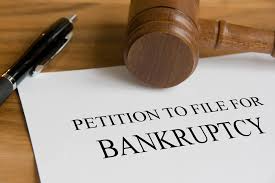Can Bankruptcy Pause a Civil Lawsuit? A Clear Look at Legal Protections
Facing a civil lawsuit while already struggling with debt can heighten anxiety and place additional pressure on individuals in Port Richey. Whether the lawsuit involves unpaid credit card balances, a breach of contract, or a pending judgment, many wonder if filing for bankruptcy can halt the lawsuit. The answer depends on the nature of the case and the timing of the filing.
This article examines the impact of bankruptcy on civil lawsuits, the protections triggered upon filing, and the circumstances under which legal actions may continue despite the filing of a bankruptcy petition. For those unsure of their rights or options, a qualified bankruptcy attorney can provide clarity and personalized guidance to help navigate the process.
Understanding the Automatic Stay
The most immediate protection bankruptcy offers is the automatic stay, a legal injunction that goes into effect the moment a bankruptcy petition is filed. This stay prohibits creditors from pursuing most types of collection activity, including pending lawsuits. Once in place, the automatic stay pauses actions such as:
- Wage garnishment
- Foreclosure proceedings
- Evictions in some circumstances
- Lawsuits seeking monetary damages
If a creditor or plaintiff attempts to continue a lawsuit after the stay is issued, they may face sanctions from the bankruptcy court. Until the bankruptcy case is resolved or the court grants a motion to lift the stay, this order remains in effect.
Types of Lawsuits Typically Paused by Bankruptcy
The automatic stay applies broadly, but it is especially effective in halting lawsuits that involve financial obligations. Some of the most common types of lawsuits filed by bankruptcy include:
- Credit card debt collection
- Medical debt recovery
- Auto loan deficiencies
- Personal loan disputes
- Breach of contract claims related to money owed
These types of cases are considered part of the bankruptcy estate and are subject to resolution through the bankruptcy process. The plaintiff becomes a creditor and must cease direct pursuit of the claim.
Exceptions to the Automatic Stay
A bankruptcy filing does not stop every lawsuit. Certain types of legal actions fall outside the protection of the automatic stay. These exceptions include:
- Criminal proceedings
- Child support or spousal support enforcement
- Lawsuits involving fraud or willful misconduct
- Certain eviction cases where judgment has already been granted
In such cases, the court may permit the lawsuit to proceed or issue a partial lifting of the stay. For example, if a civil case involves allegations of fraud, the creditor may request permission to proceed, arguing that the debt should not be discharged.
What Happens to a Lawsuit Once Bankruptcy Is Filed?
If the automatic stay applies, the plaintiff must pause the lawsuit and may instead file a proof of claim in the bankruptcy court. The claim becomes part of the broader case and is subject to approval, modification, or discharge based on the type of bankruptcy filed.
In a Chapter 7 case, the lawsuit debt may be fully discharged if it qualifies as unsecured and non-priority. In a Chapter 13 filing, the debt may be included in a repayment plan and satisfied over time. The original civil lawsuit is no longer handled in civil court but has been absorbed into the bankruptcy process.
READ MORE : Why Photo Booths Make Corporate Events Fun
Lifting the Automatic Stay
While the stay is automatic, creditors can petition the bankruptcy court to lift it. If a plaintiff can demonstrate that their lawsuit involves matters outside the scope of bankruptcy or that continuing the case will not harm the bankruptcy estate, the court may grant relief. This type of action is more common in lawsuits involving real property, fraud claims, or ongoing business disputes.
Debtors facing such motions should work closely with their attorney to respond effectively and protect their interests.
Timing Matters
Timing is a key consideration. If a civil lawsuit is already well underway, filing for bankruptcy may stop the process, but previous judgments may still have consequences. Conversely, filing before a judgment is entered may prevent liens or wage garnishment from taking effect.
Delaying bankruptcy until after a civil judgment can limit available protections, particularly if a creditor has already taken steps to enforce the judgment through garnishment or property seizure.
Consult a Bankruptcy Attorney for Guidance
The intersection of civil litigation and bankruptcy law is complex, and each situation depends on the specific facts of the case. A bankruptcy attorney will evaluate whether a lawsuit can be stopped, how to best respond to legal threats, and whether a filing offers the most effective path to financial recovery.
Your attorney will also communicate with the civil court as needed, file proper notices, and ensure that your bankruptcy filing triggers all the appropriate protections under federal law.
For individuals in Port Richey who are struggling with debt and facing a civil lawsuit, bankruptcy can provide robust legal protection through the automatic stay. However, the effect of a bankruptcy filing on any given lawsuit depends on the nature of the case and the timing of the petition. To understand your options and take informed action, consider contacting Weller Legal Group, where experienced bankruptcy attorneys are available to guide you through the process.

